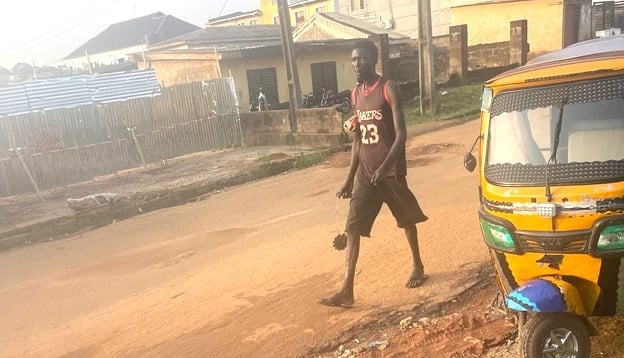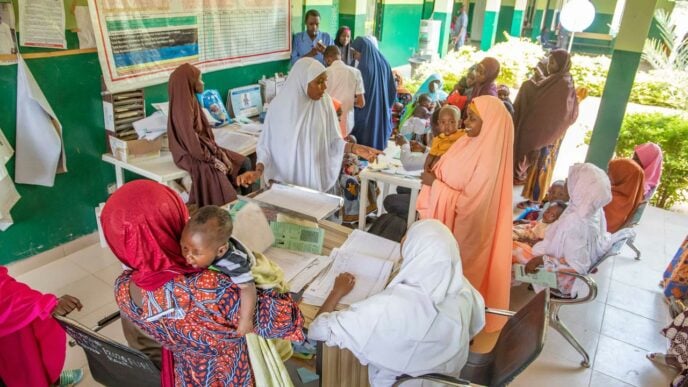A baban bola scavenger
BY DANIEL NWORIE
Chikichikichki… chikichikichki. The metallic clatter of about four equal small round rings tied together with rope is a sound that is familiar to the average Nigerian ear. The sound reverberates through neighbourhoods and across many cities in Nigeria, signalling the arrival of the Baban bola, young men who comb streets, canals, and refuse dumps, looking for items of value to scavenge.
To most people, the sound is an irritation, but to the baban bola or bola boys, it is simply another day in a system they have quietly built into an informal solution to Nigeria’s solid waste crisis.
Nigeria generates an estimated 32 million tonnes of solid waste each year, according to the World Bank, with only around 20-30 per cent being properly collected and managed. Much of the rest are dumped in open sites, burned in open areas, or left to choke city canals and drainage channels.
Advertisement
The 2024 Yale Environmental Performance Index ranks Nigeria poorly on environmental health and ecosystem vitality, at 140 out of 180 countries. To rank countries, the EPI combines 58 indicators across 11 issue categories, ranging from climate change mitigation and air pollution to waste management, sustainability of fisheries and agriculture, deforestation, and biodiversity protection.
As poor as these statistics are, it is not government agencies that have prevented a total collapse of the system. Less than five per cent of Nigeria’s total refuse are collected by the government and 59 per cent by the informal sector, according to a report by the Institute for Peace and Conflict Resolution (IPCR).
The real line of defence has come from the baban bola system, a decentralised network of informal waste pickers who have carved out a crude but functional recycling chain.
Advertisement
THE BABAN BOLA CHAIN
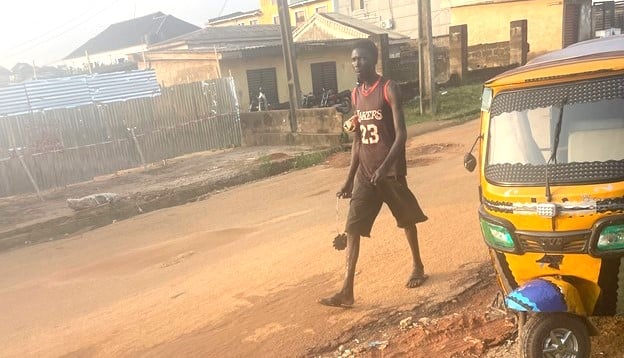
Every day, young men like Mustapha Abdullah comb the streets of Lagos for disposed metals and aluminium materials.
Mustapha, 28, began in Kaduna before moving to Lagos in 2021, where he heard the trade was more profitable.
Now, his daily routine involves buying or picking plastics, copper, iron, aluminium, brass, cartons, and nylon from gutters, waste bins, and even canals.
Advertisement
“Sometimes, I don’t spend a kobo because I find them everywhere,” he said. “Other times, I enter canals and come out with my bags filled with plastic and iron.”
But the bola chain does not end with scavengers. Their survival depends on depot owners who buy recovered materials and supply Nigeria’s recycling factories. One of them, Ismail Lekan, has spent decades in the trade, beginning in the Olusosun dumpster before moving through the Ojota, Mushin, and finally Ikorodu areas of Lagos.
Over the years, he has built a thriving business buying every kind of scrap materials and reselling them to businesses into recycling.
“I started this business in 1985, and I’ve done it for over 40 years now,” he said. “What you think is waste is money to me, and I sell it to companies that recycle it.”
Advertisement
Day after day, this loosely structured system ensures Nigeria’s environmental ecosystem is not completely grounded.
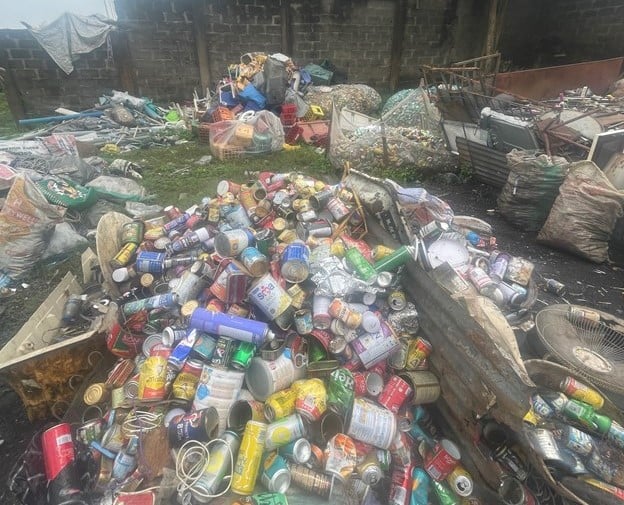
In the past, there have been various attempts to ban the operations of scavengers in several states and cities in Nigeria such as Adamawa, the FCT, Borno, Enugu, etc. However, it only takes a few weeks before they are back on the streets as there are no viable alternatives to replace the activities of the baban bola waste pickers.
Advertisement
Abdullah Isah, 32, a local depot owner who also scavenges these materials, agreed that the system is indispensable and any government’s attempt to completely get rid of them without realistic planning would find more waste than it can deal with.
“Many times, people think we are a problem to society because of some of the terrible and wicked actions of some people in this business, but without us, the problems become bigger, as everywhere becomes filled with waste,” he said.
Advertisement
AN ECONOMIC LIFELINE FOR THOUSANDS
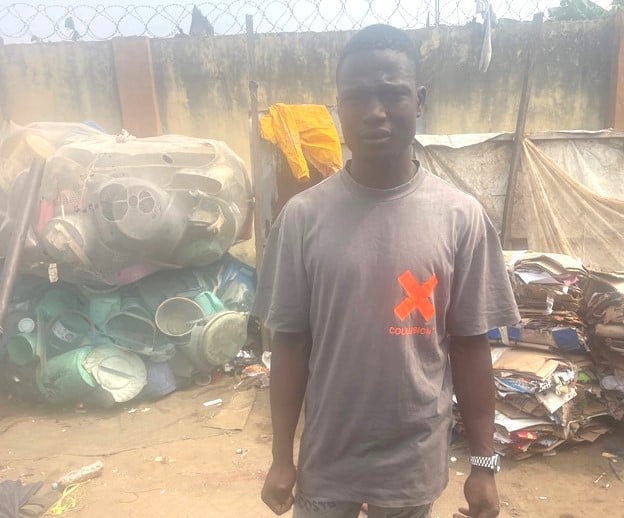
Beyond the environmental relief that the system provides society, the economic impact is just as significant. This is the source of livelihood for the thousands of people in the business, like Isah, who started this business in 2020. He has fed his family from the business and introduced some of them to it.
Advertisement
At first, he focused on used cartons, but these days, demands have shifted to plastic materials, he said.
“One of the blessings of this business is that you do not need any capital to start it. Just go to the streets, and there are materials waiting for you to just pick them,” he said.
Another scavenger, Ismail, said he has built two houses from the proceeds of the business.
“I have spent a large part of my life in it. I got married in it, and I had children in it too. Today, my children are all grown-ups, catering for themselves,” he said.
Beyond the earnings for sale, Isah said they get lucky finding more valuable items like gold or silver while scavenging fills.
“I know someone who found gold and sold it for close to N2 million,” he said. “So, sometimes, we are excited at the prospect of finding such items.”
’BOLA BOYS NOT ALLOWED’
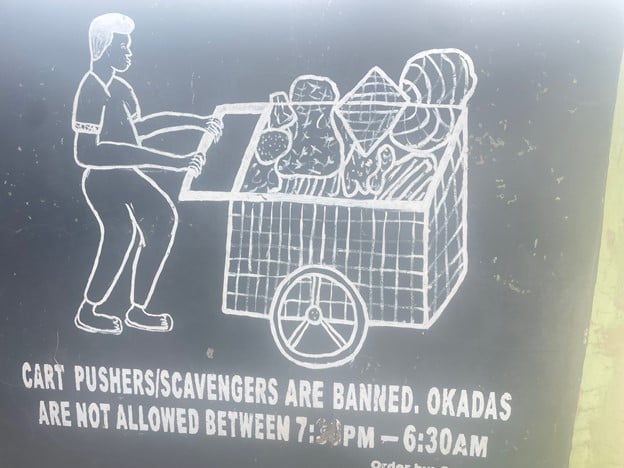
However, one of the biggest social concerns raised by residents to this system is frequent cases of theft by people who pose as scavengers.
Some Lagos streets and estates, like the James Daniel Street in Ikorodu, have, as a result of this, placed inscriptions to dissuade the entry of scavengers.
“I have never stolen before, but I have seen and heard many cases where some bola boys steal people’s valuables,” said Mustapha.
This has resulted in hostilities in some communities, he said, recalling one such incident.
He was walking alongside a friend with their signature magnets to scour through waste when a man suddenly approached them and asked them to leave immediately. His friend tried to respond with the same hostility but was met with beatings.
“I was slapped too before someone finally admitted we were not thieves,” he said.
But the damage was already done. Since then, I have not gone to areas where they do not want us.”
Depot owners like Ismail face their own share of stigma. In all his years in the business, he has had three experiences with the police, and they were not good ones.
On those occasions, the police had arrested him after a citizen reported that a stolen item was sold to him.
“Sometimes, people bring stolen items to sell. How do you expect us to know which was stolen and which was bought or picked from the gutter?” he lamented.
After his first experience, he decided to start rejecting suspicious transactions, but it has not worked and he has had to pay for items when the police get to him.
THE CASE FOR FORMALISATION
Without regulation or formal registration, honest collectors and opportunistic thieves are indistinguishable, leaving the whole sector tainted. Even where trust is not an issue, scaling the system remains a stubborn barrier. This is even as they handle only a fraction of Nigeria’s over 32 million tonnes of annual waste.
The bola boys focus mainly on high-value recyclables like copper, aluminium, and plastics, while low-value or hazardous waste is left behind.
Isah said previous attempts to formalise their business have ended in frustration.
“I still have the ID card and uniform they gave us. After a while, everything just dwindled. Enforcement was poor. Then they started mandating us to buy tickets every day. Who does that?” he asked.
Chikaodili Orakwue, an environmental expert and chief research fellow at the federal ministry of foreign affairs, argued that the government’s lack of political will has stifled progress.
“The government has not fully recognised the significant contribution of these waste pickers to the environment, and they lack the political will to formulate a policy that will formalise the sector,” she said.
The INCLUDE 2024 report supports this, showing that while the informal sector already manages nearly 60% of Nigeria’s waste, it does so with no framework for dignity, safety, or efficiency.
Formalisation, Orakwue insisted, could change that.
“When the sector is properly regulated, and when there is collaboration with dumpsite owners in planning, decision-making, and implementation, formalisation can balance dignity, autonomy, and efficiency,” Orakwue said.
“With proper advocacy, persistence, and awareness creation, this sector can become a true circular economy that creates jobs and contributes to GDP growth.”
This report was produced as part of the Liberalist Centre’s Journalism for Liberty Fellowship, with support from Atlas Network and the Institute of Economic Affairs.
